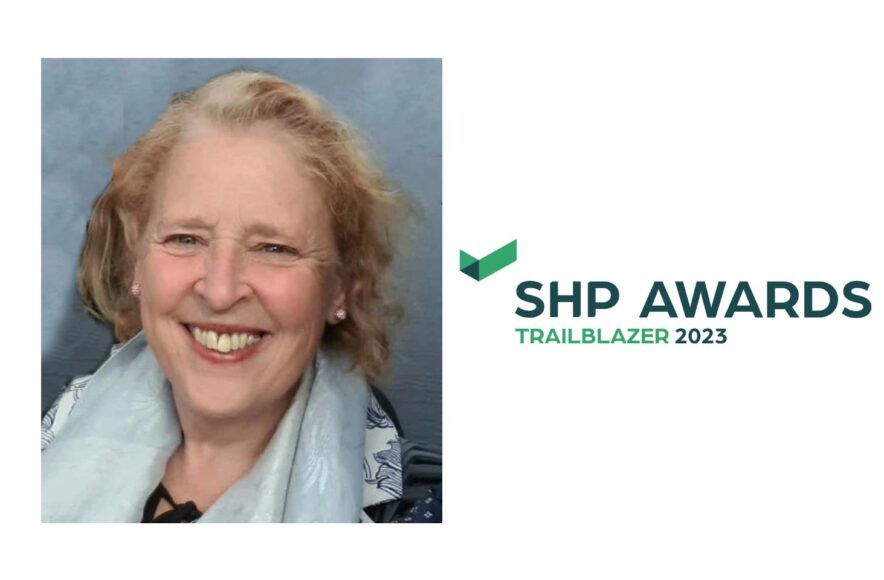Shonagh Methven highly commended for Safety & Health Practitioner’s Trailblazer 2023 award

Shonagh’s work recognised that some people with learning disabilities and autism may refuse to leave their homes, even in the event of an emergency like a fire.
Judges at SHP were impressed by Shonagh’s approach, which has particular significance following the Grenfell tragedy, and commended her ‘clear motivation to help those who need it most’.
By identifying ‘objects of reference’ – something that means a lot to someone that they’d want to take with them – Shonagh has revolutionised how we support people in an emergency:
“We want to make it more likely that the person will come with us,” said Shonagh. “You’re looking for something that someone cares about.”
She explained that some people chose teddy bears, photographs or their favourite tea mug as their objects of reference.
“One of the other things that really works is their friends who they live with – that can be someone they really care about. One gentleman we support, he comes in out of his bedroom, knocks for Tom in the next bedroom, gets Tom and the two of them go out, so Tom is his object of reference.”
For other people, Shonagh and our support staff found that a ‘phrase of reference’ works better. The phrase is repeated by staff, family members or friends as a prompt to evacuate the building:
We find a way to convince the person to leave their bedroom or their house every day and return. So that when it has to work, in an emergency, we know what works.
At a recent CQC inspection in Blackpool, someone we support was asked what they do when a fire happens. The gentleman took the inspector by the hand and showed him where the assembly point was, explaining the evacuation process.
“That for me was evidence enough,” said Shonagh.
Assessing risks
Shonagh has worked for United Response for 20 years. She enjoys working with our teams across the country, supporting them with any concerns and empowering them to take appropriate and safe risks:
“I think we stand out in the sector. We’re a huge organisation with lots of imagination, lots of creativity and lots of people with different expertise that pull together to make things happen.
Our promise to people we support is you can live the life that you want. That doesn’t come without risk to the organisation or to the individuals who make that happen, so my job is to support staff to be bold.
As Head of Health and Safety, Shonagh says the thing she likes most about her work is the engagement with frontline staff. She’s ‘especially proud’ of how our teams came through the Covid pandemic:
They worked their socks off. People’s lives were saved and that’s so important.
Career highlights
Another of Shonagh’s proudest moments was being a trainer when United Response first introduced Helen Sanderson’s person-centered thinking tools back in 2009.
She also contributed a chapter about a person-centered approach to risk management to Sanderson and Stirk’s book, ‘Creating Person-Centred Organisations: Strategies and Tools for Managing Change in Health, Social Care and the Voluntary Sector‘ back in 2012.
In 2024, Shonagh and her team are focusing on ‘lessons learned’, looking at where United Response can make procedural changes in health and safety to prevent future problems from occurring.
Outside of work, Shonagh’s leading by example and being brave in her own life. She even completed a bungee jump to show what can be achieved when you take a well-considered risk!
- Jenna Lloyd is Senior Content Officer for United Response.